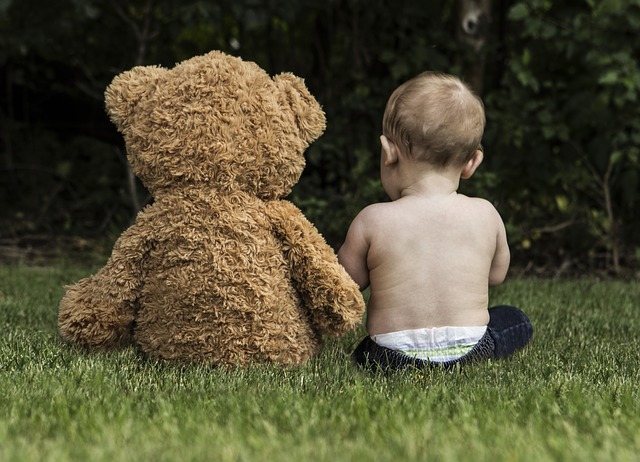How to cope with the loss of your child’s favorite toy
Many children become so attached to one favorite toy (diaper, blanket, or another object) that they cannot sleep, walk or play without it. And if this thing is lost, then a real disaster comes for the child. What are the reasons for such attachment, how to help the baby survive the loss, and how to behave toward parents?

Table of Contents
Why does a child become attached to one toy?
At the age of 1-2 years, some children experience a lack of communication with their mother – for example, she goes to work, and the baby stays with a nanny or starts going to kindergarten. In order to compensate and survive this separation from the closest person, the child “chooses” an object for himself that replaces his mother. Contact with this object causes a feeling of comfort, calms the baby, and helps him to endure difficulties and learn something new.
Such an object is called a transitional object. Very often, parents themselves contribute to its appearance in the life of a child – they put him to bed with the same toy, give it to calm him down, teach them “together” to the potty. But sometimes the child himself shows special affection, choosing a variety of objects as a transitional object – a hat, a washed piece of fabric, a sock, and so on.
Not every kid has a favorite item or toy. Both cases are considered normal. As a rule, a child does not need a transitional object if he has enough communication and contact with his mother.
What to do if the toy is lost
The most important advice given by “experienced” parents is to prepare a spare toy or object in advance. In order for the replacement in case of loss to be painless, a spare toy should not just lie and “wait” in the wings. Be sure to let the baby play with them in turn. Indeed, smells, tactile properties of the toy and its appearance play an important role in attachment to the transitional object. And the child will immediately understand that this is not his favorite bunny or bear, washed out, soft, with an already worn ear or a bitten nose. In this case, the pain of loss will be supplemented by disappointment and a sense of betrayal by the parents who “decided” to deceive him.
Another point that will help protect against disaster when your favorite toy is lost is not to take it with you from home. For walks, trips, visits, or kindergarten, you can buy a similar, but smaller size.
If suddenly, while walking with a child, you notice a toy or some kind of children’s object on the ground, a bench or, for example, a swing, then someone has lost it too. And, perhaps, now this baby is very sad, and his mother is trying to find the child’s favorite toy. Help them with this – put the toy in a conspicuous place, give it to the employees of the nearest store. You can take a picture of the find and post it on a social network. Explain to your child that you should not take this toy, because the baby who lost it is very worried and suffers.
But what to do if no such measures were taken in advance, and the beloved object was still lost:
- Search everywhere. You can do this with your child – walk around the places where you were at the time of the loss. Ask passers-by, and employees of a store, park, or playground if the “favorite” was forgotten there. Searches can be carried out in a playful way – become trackers, fantasize about where the toy could “go”.
- Post ads. Connect the kid to this – let him draw his pet or “write” an announcement about his loss. Indicate your phone number, print out the required number of copies, and paste them together with the child in places where someone could see or pick up the toy. You can also write on social networks, asking for reposts and promising a reward for returning the toy.
- Buy exactly the same. Sometimes this is problematic if the toy was bought in another country, made to order in a single copy, or donated. If, nevertheless, you managed to acquire an identical object, then you should not “slip” it to the child imperceptibly. In most cases, children will feel deceived and will not accept a new friend.
In no case should you insist or deceive the child, saying that he does not understand, and in fact, this is the same toy. The best thing to do is tell your child honestly that their pet is lost. Older kids may “come to terms” with the loss and agree to choose a new friend or buy the same one together.
For toddlers, you can come up with a story that will help justify the replacement. For example, to say that Bunny (Mishka, Lyalya) had to leave for another country, and she sent her friend (son, daughter) to replace her during her absence. Or that she was a “spy”, she was declassified, so she had to urgently hide, but instead of herself, she left another toy. Then support this legend for some time, “send” letters to the departed toy, “tell” her how the baby is bored.
The legend is also good because sometimes lost toys are found. In this case, it will be easier for the baby to understand what happened – the pet returned from a long journey / he again arrived on a secret mission and the like.
What to do if no methods help
Realizing that the favorite toy is lost forever, the baby begins to experience this very acutely. At the same time, he has feelings and emotions that accompany the loss of a loved one – grief, sadness, tears, and sometimes anger. The baby himself is not able to cope with this range of feelings, so he definitely needs the help of his parents. What exactly will help:
- To suffer and cry out grief. Do not stop the child, do not say: “Why are you crying? Think the toy is lost. Let him cry, and express his thoughts and experiences. Be close, hug, and sympathize with the baby. Ask what you can do to ease his sadness.
- Express emotions in art. Ask your son or daughter to draw, mold, or appliqué your lost friend. Let him fantasize about where the toy might be now and what it “does”. Also, if the baby is ready for the appearance of a new object of affection, you can draw it too. Ask what he should be, and what qualities he should have.
- Don’t dwell on the loss. Some children quickly come to terms with the loss, while others remember it for the rest of their lives. In any case, you should not constantly remind yourself about the loss, but if the baby himself talks about it with you, then do not interrupt him, but support him as much as he needs to calm down.
Particular attention should be paid to the fact that in no case should a child be scolded for losing a toy. For him, this is already a strong punishment, so parents should refrain from reproaches for inattention, absent-mindedness, and a “bad” attitude toward toys. The kid definitely did not do this on purpose, so do not aggravate his grief.

